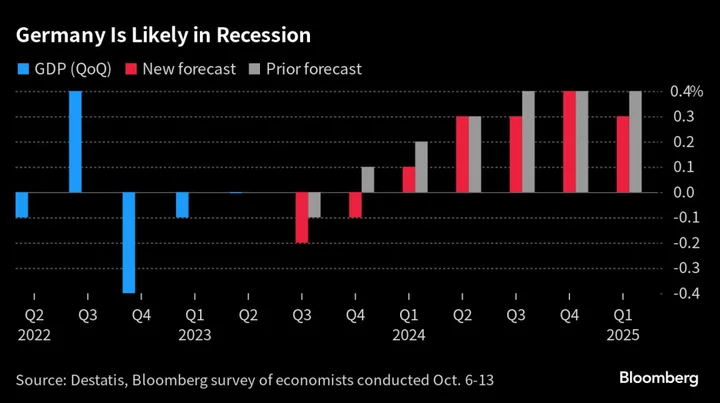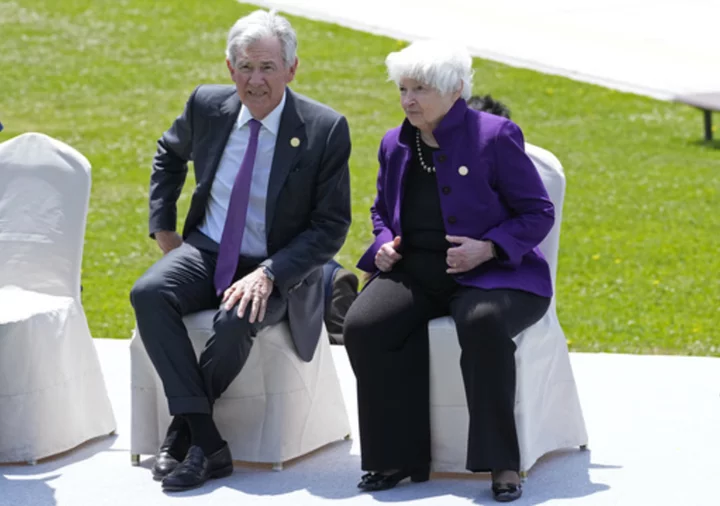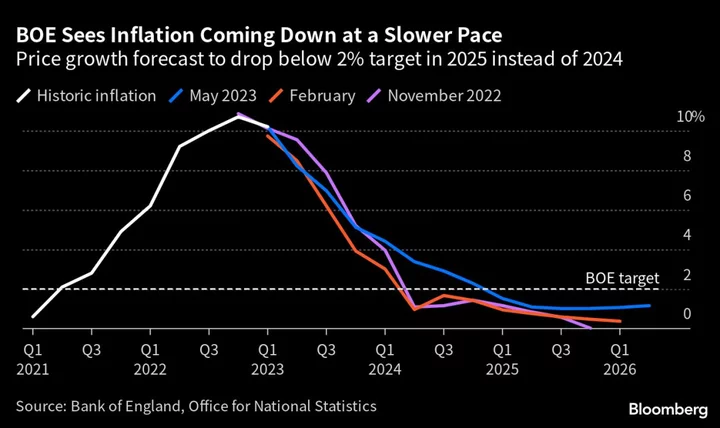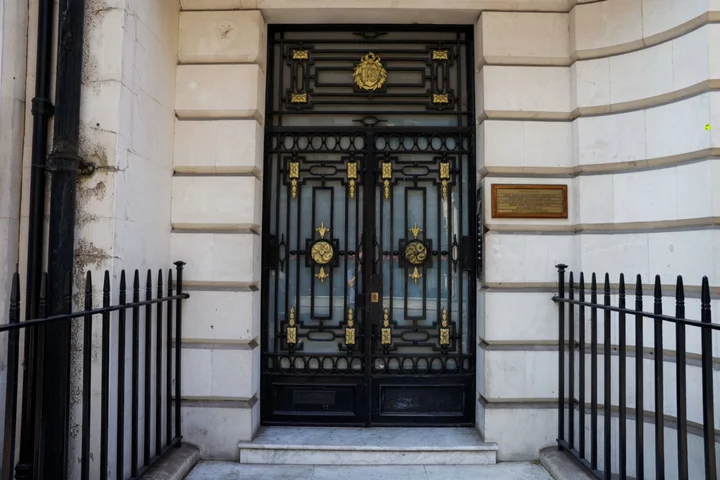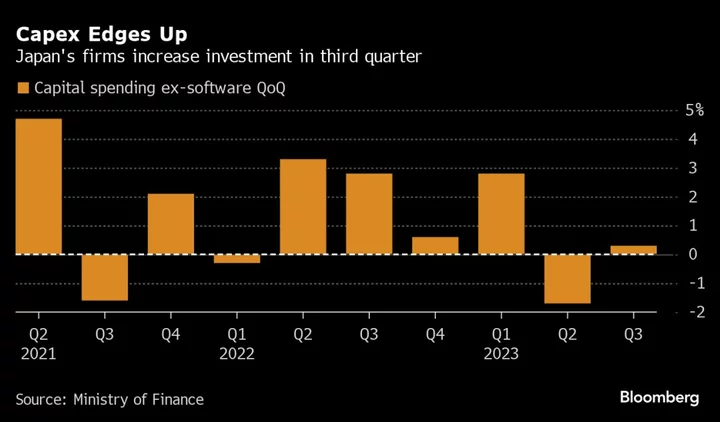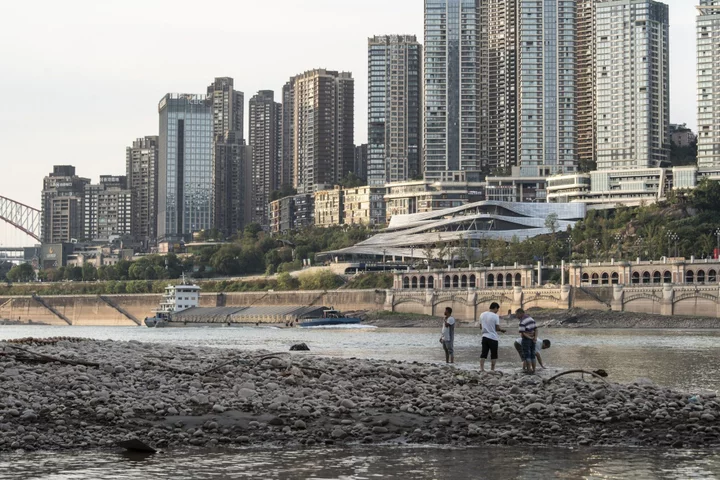Economic growth in China exceeded forecast, helped by stronger retail sales at the end of the third quarter and bolstered by government stimulus efforts.
Household demand was also robust in the US and likely contributed to the strongest pace of economic growth in nearly two years. Meanwhile, persistent industrial woes are projected to leave the German economy — Europe’s largest — in another recession this year.
Here are some of the charts that appeared on Bloomberg this week on the latest developments in the global economy:
Asia
China’s economy gained momentum last quarter as people ramped up spending on everything from restaurants and alcohol to cars, offsetting a drag from the property crisis and putting Beijing’s annual growth goal well within reach.
China’s central bank stepped up efforts to support the nation’s economic recovery and debt sales by delivering the largest cash injection since 2020 with one-year policy loans. The injection of extra cash into the economy will offer a much-needed boost to China’s growth, which has been challenged by a lack of demand and a downturn in the property market this year.
South Korea’s trade minister said his country is prepared to look for alternative sources of graphite if China’s newly strengthened export controls on the key material used in electric-vehicle batteries cause a severe shortage.
Europe
UK inflation failed to slow as forecast in September as rising oil prices offset downward pressures from food costs. The miss firms up the case for the Bank of England to leave interest rates at their highest level in 15 years for the foreseeable future.
Germany won’t escape a second recession this year as the economy long seen as Europe’s motor limps through persisting industrial weakness, according to forecasters. The collective outlook suggests that Germany will have suffered five consecutive quarters without any expansion at all.
Extra pension and healthcare spending coupled with increased borrowing costs will hamper the European Union’s ability to hit its climate goals and strengthen its armed forces, according to a study by Scope Ratings. Rising social, green and military expenditure, and higher interest rates are expected to worsen EU member states’ deficits by an estimated 4.5% of economic output on average by 2030.
US
US retail sales exceeded all forecasts and industrial production strengthened last month, fresh evidence of a resilient American consumer. The reports prompted a slew of economists to boost their tracking forecasts for third-quarter GDP. The government issues its first estimate of third-quarter gross domestic product on Thursday.
President Joe Biden unveiled a nearly $106 billion request for emergency funds to arm Israel and Ukraine and to reinforce the US-Mexico border. The bulk of the supplemental request – and perhaps the biggest hurdle — is a $61.4 billion ask for a year’s worth of assistance for Ukraine in its effort to turn back Russia’s invasion. The White House is also asking for $14.3 billion to boost Israel’s defenses following the Oct. 7 attack by Hamas.
Americans experienced a record surge in net worth during the pandemic, laying the groundwork for economic resilience in 2023. Inflation-adjusted median net worth jumped 37% from 2019 to 2022, the largest three-year increase in Federal Reserve data back to 1989.
Emerging Markets
Argentina’s next president will take over in the middle of a financial emergency — which is par for the course in one of the world’s most dysfunctional economies. If the economy contracts this year as expected, it will mean the economy has shrunk in almost half of the years since 1980.
Across the Americas, governments have deployed troops and erected barriers to try to stem what’s become an exodus of 7.7 million Venezuelans from the once-wealthy petro state. In Brazil, they’re welcoming the newcomers with open arms.
World
Bank Indonesia increased its seven-day reverse repurchase rate to a fresh four-year high, which was predicted by just one of the 31 economists surveyed by Bloomberg. Bank of Korea Governor Rhee Chang-yong warned of the risk of market jitters stemming from the Israel-Hamas conflict after the central bank stood pat on interest rates. Tunisia also held.
--With assistance from Maria Eloisa Capurro, Philip Glamann, Ocean Hou, Harumi Ichikura, Sam Kim, Kamil Kowalcze, Denise Lu, Iris Ouyang, Tom Rees, Andrew Rosati, Augusta Saraiva, Zoe Schneeweiss, Justin Sink, Alex Tanzi, Fran Wang and Lucy White.

